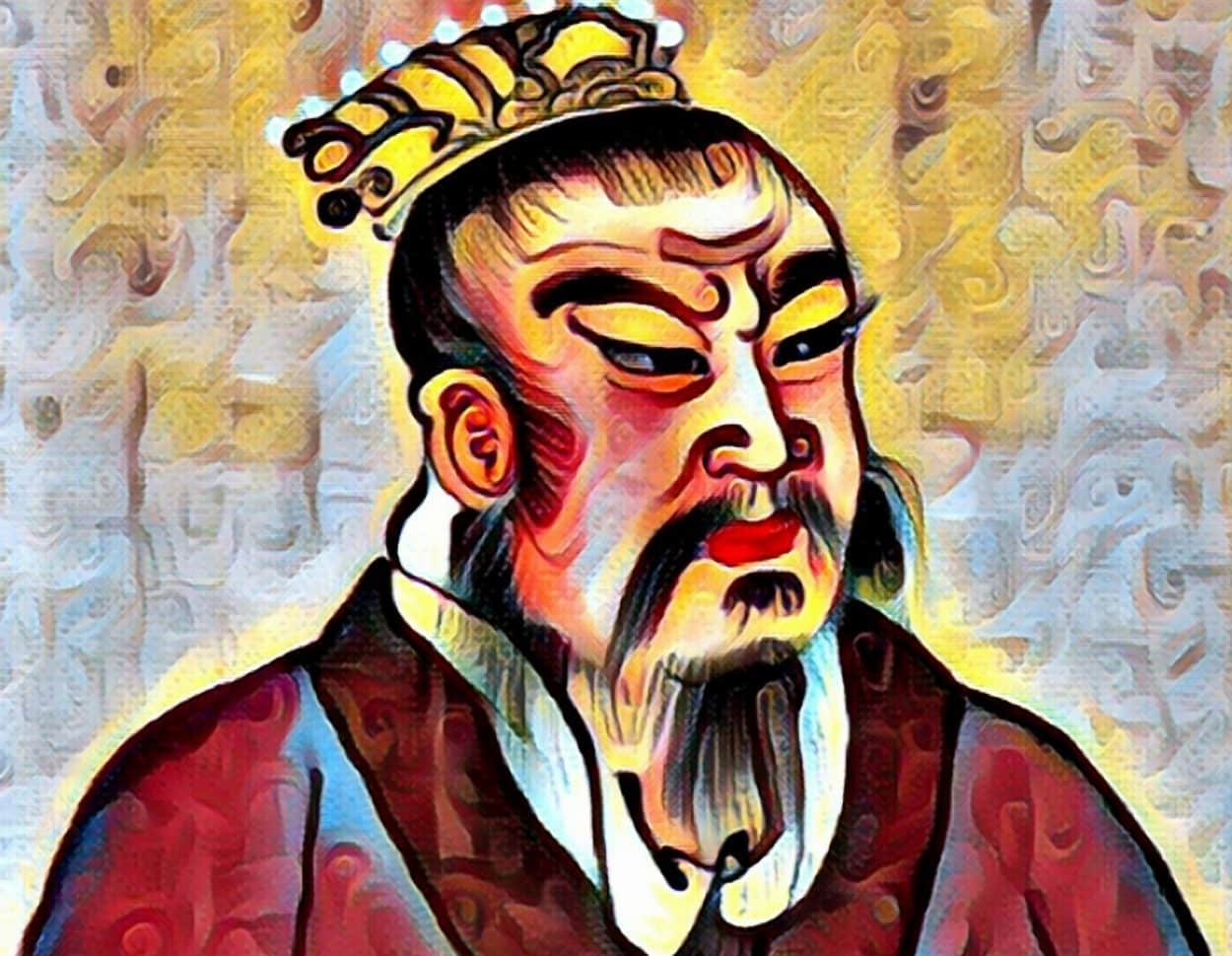Emperor Gaozu of Han, born Liu Bang, was the founder and first emperor of the Han dynasty, reigning in 202–195 BC.
Liu Bang was born during the late years of the Warring States, a period concluded with the Qin wars of conquest that saw the annexation of all other contender states, which ultimately led to the Qin state’s victory in 221 BC as the first unified Chinese empire, known as the Qin dynasty.
According to legend, Liu was born into a peasant family in Zhongyang after his mother, Liu Ao, encountered a dragon during a rainstorm, although, according to imperial Han myth he was the descendant of the mythical Emperor Yao and the Yellow Emperor.
Following the death of the first emperor, Qin Shi Huang, the Qin dynasty saw two ascendants to the throne, but the Qin Empire became fragmented and collapsed due to a series of uprisings, ultimately resulting in the territories being divided into the Eighteen Kingdoms. Liu received the isolated Bashu region (Sichuan Basin and upper Han River valley), then a place used for exiling prisoners and was granted the title “King of Han”.
From 206 to 202 BC, Liu Bang engaged the other ruling kingdoms in a power struggle – historically known as the Chu–Han contention – for supremacy over China, while simultaneously attacking and subjugating the other kingdoms.
By 202 BC, Liu had defeated all other contenders and was enthroned as the emperor, taking the name of “Emperor Gaozu” or “Emperor Gao”. He established his capital in Luoyang (later moved to Chang’an) and instated his official spouse, Lü Zhi, as the empress, and their son, Liu Ying, as the crown prince of the Han Dynasty.
He appointed princes and vassal kings to help him govern by dividing the Han Empire, but worried that the vassal kings might rebel, he would later accuse several of treason and have them arrested and executed along with their families.
Liu Bang was described as a coarse man who once urinated into the formal hat of a court scholar to show his disdain for education. However, during his reign, Lui gradually replaced Legalism (of Qin times) with Confucianism as the state ideology, a system of thought and governance that developed from what was later called the Hundred Schools of Thought, derived from the teachings of the Chinese philosopher, Confucius (551–479 BC).
Some scholars suggest that Lui had a pillow companion, or homosexual lover, known by the name of Ji Ru. Ji Ru was a trusted personal servant who was elevated to the top of the Royal administration, with one account by Sima Qian written in the 1st century BC in the Records of the Grand Historian describing:
“When the Han arose, Emperor Gaozu, for all his coarseness and blunt manners, was won by the charms of a young boy named Ji, and Emperor Hui had a boy favourite named Hong. Neither Ji nor Hong had any particular talent or ability; both won prominence simply by their looks and graces. Day and night they were by the ruler’s side, and all the high ministers were obliged to apply to them when they wished to speak to the emperor.”
As his health deteriorated, Empress Lü Zhi hired a physician to attend to the Emperor. Lui refused any treatment and responded: “Isn’t it Heaven’s will that I managed to conquer this empire in simple clothing and with nothing but a sword? My life is determined by Heaven.”
In 195 BC, Lui died in Changle Palace and was succeeded by Prince Liu Ying, who became historically known as Emperor Hui. Following the Qin tradition of the construction of burial mounds, Liu was buried in a large truncated pyramidal tomb, located in the Changling mausoleum group in Xianyang, along with the Empress Lü Zhi and Consort Q in adjacent pyramidal tombs.
Header Image Credit : Alamy (Copyright)





